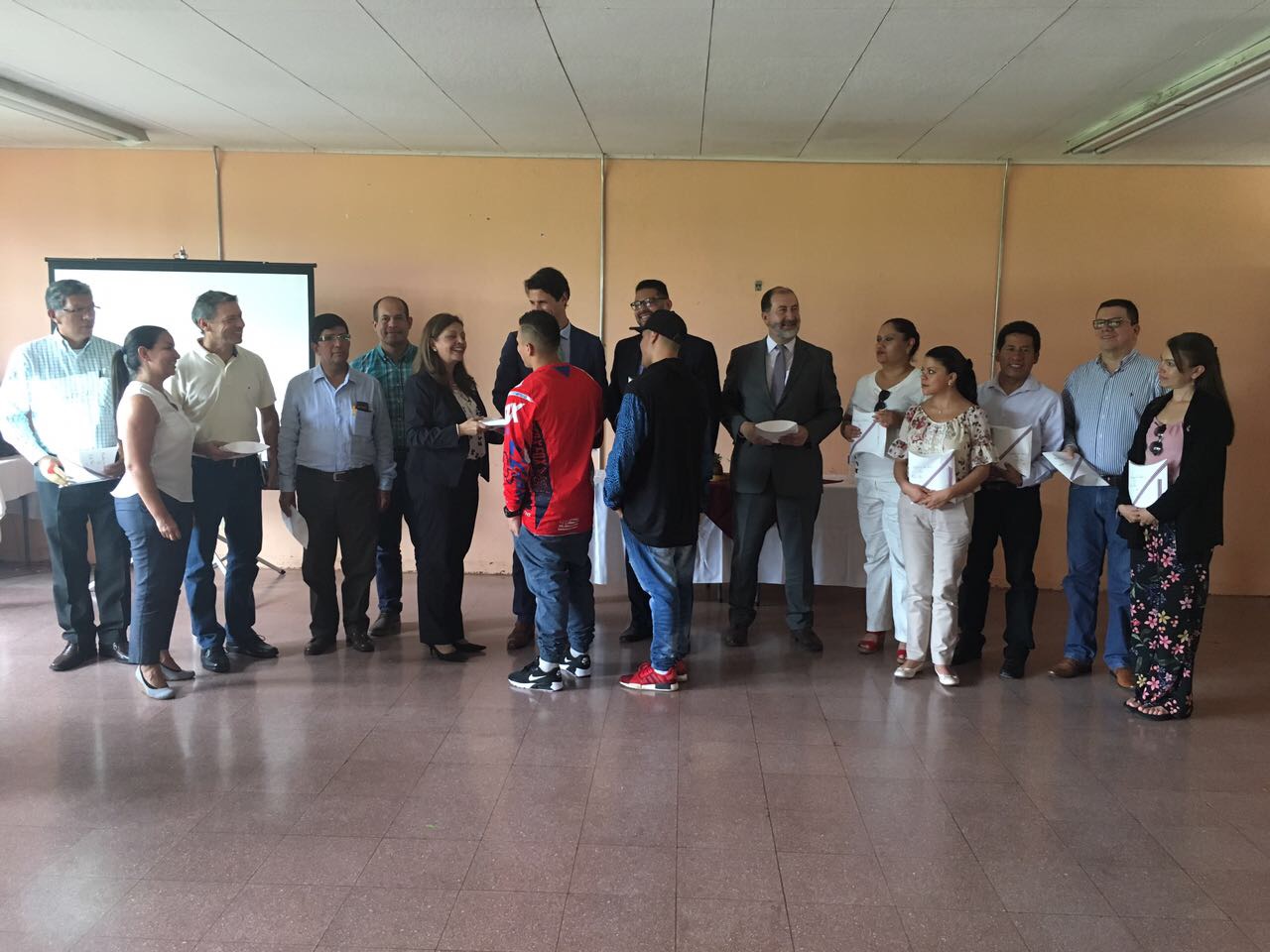Closing Visit Restorative Justice in Costa Rica

The Zurquí Youth Training Center was the scene of the closing ceremony of the training and observation visit on Restorative Justice in Costa Rica, which took place from September 4 to 8, with the participation of judicial authorities from Mexico and Colombia.
"As a general observation, we have observed that Restorative Justice in Costa Rica has been a State policy, which serves as a scaffolding for the conciliation of order and peace in the various facets of social life. For all these reasons, it seems to us that Costa Rica is an international reference because it is a kind and essentially restorative State"; these were part of the conclusions addressed this morning by the judicial representation of Mexico.
"We have seen many positive elements in this Restorative Justice project in Costa Rica. The high commitment in all its authorities with this project and an idea emerged from the judicial branch that has spread to all the institutionality of Costa Rica. The fact of elevating Restorative Justice to state policy undoubtedly facilitates the work of judges and the operational work of the judicial branch and leads to a path of alternative conflict resolution and to become an element of peace in Costa Rican society," said the judicial delegates of Colombia.
This activity was attended by Judge Doris Arias Madrigal, President of the Criminal Cassation Chamber and Director of the Restorative Justice Strengthening Project, European Union Ambassador Pelayo Castro, Minister in Office of the Ministry of Justice and Peace Alejandro Redondo Soto, and Colombian Counsellor in Costa Rica Alberto Bula Bohórquez, as well as members of the High Council Milena Conejo Aguilar, officials from the Judicial Branch and the Ministry of Justice.
"In my office we dreamt that we could make a regional project, we had to fight against many adversities however when an idea has strength and especially when we put love and work the idea fructifies, finally we have today a photo14 consolidated regional project, this is the first project that is approved in Costa Rica in the subject that has to do with European cooperation with the tripartite collaboration, they call it South cooperation. What we want with this program is that the Restorative Justice in Costa Rica has had excellent results not only stay here but that we exchange these experiences with other countries. Colombia and Mexico have also played a determining role in this exchange," said magistrate Arias Madrigal.
The Ambassador of the European Union, Pelayo Castro, said: "This Restorative Justice project is a milestone because it opens with a very clear example this new way of cooperating, it is the first and I am sure that it is not the last and I would like that in Costa Rica as well as Mexico and Colombia were other actors who learn and are inspired by this collaboration to apply it in many other areas.
During the morning, the delegations participated in an extensive tour of the prison facilities and learned about some of the educational, training and recreational projects of the center, by the Director a.i. of the Juvenile Penal Center, Pedro Rojas and the Director of the Juvenile Penal Program of the center, Keylor Rodriguez.
Likewise, they learned about the Kokedamas project, about the production of ornamental plants, which is carried out by two young people deprived of their liberty in the prison. At the end of the activity, the magistrate Arias Madrigal gave two young people gifts donated by the companies Claro and Kolbi and there was an exchange of gifts to the delegations of Mexico and Colombia made by minors inmates in the Training Center.







